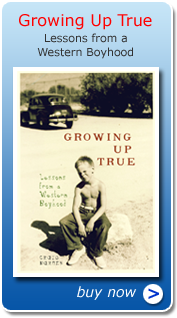Can the free market save democracy? Barack Obama is attempting to extend health care to at least the 45 million or more in America who are not rich. In response the health care industry— which is very rich indeed—is this year spending $1.4 million a day to lobby the Congress to preserve what they call the free market. These titans of magnificent wealth have now also promoted a country-wide campaign to disrupt town hall meetings about health care, to shout and wave the Constitution as if taxes and government laboring on behalf of all the people is un-American.
One of our country's founders, Alexander Hamilton, would certainly be on the side of the insurance industry today. He argued that it is necessary to give to the very rich "a distinct, permanent share in the government." In 1776, a Scotsman, Adam Smith, had written in the Wealth of Nations that the free market was as good a way as any to guarantee public morality. Adam Smith was perfect for Hamilton who could then argue that the market is moral and the mob is not. Those were two different propositions but together, and ever since, these slogans have allowed for the rich to stay rich and—because the market is moral—to justify everything from child labor in the mines, to unsafe factories, to today's campaign to deny health care to all Americans.
When in the 1930s president Franklin Roosevelt used government to protect and empower those who did not start out rich, intending to give the middle and lower classes an equal chance to become rich, Hamiltonians resisted. They persuaded the least democratic of all our institutions, the federal courts, to strike down the New Deal. Eventually, however, Hamiltonians lost this fight and for a generation the ideals of compassion and equality of opportunity flourished in America.
In the 1980s, however, after president Lyndon Johnson had used government to empower blacks and poor people, Ronald Reagan revived the idea that moral authority lies with the rich. He did not, of course, put it that way. He said morality comes from the free market. But that is just another way of saying that when 1% of the country owns 30% of the wealth it is OK, or when 10% of the country own 90% of the wealth that is OK. It was the same argument that Hamilton used to justify kings, grand estates, and palaces for priests and it was the equivalent of saying that wealth is good and poverty is irresponsible. Since the 1980s, Republicans have steadily empowered the rich at the expense of the middle class and poor, offering tax breaks for the wealthy and dilution (or abolition) of government regulation, opposition to unions, and support of whatever it may take for those who are rich to stay rich. Their mantra is not, in any sense, democracy. Like Hamilton, they are satisfied with the idea of a permanent wealthy class, insulated from democracy altogether.
According to free marketeers, equality of opportunity is not the test of a good society. Fairness is not the test. Justice is not the test. Religious compassion is not the test. The market will encourage all these benefits without government. If, lamentably, greed is the driver for all this, that is acceptable because the result of great greed is great good. Further, the market determines those who are morally right so that those who cannot afford health care must be morally wrong. Morally deficient people may be vilified and attacked at town hall meetings, shouted down and embarrassed during this August recess of Congress.
These mobs seek to overwhelm that other stream of American democracy, the Jeffersonian belief that wisdom and reason may be found in the common people, in their education, and in their health. The Hamiltonians are still seeking to stifle the idea that equality is also a value in America, that fairness is a value and that decency, compassion and respect were primary in settling the frontier, are primary in raising children, and will always be primary to establish a civil society.
The free market may choose to operate entirely independent of these values and sometimes in outright contradiction to them. Without regulation that free market tends to value profit in the short term more than community in the long term. Without control the free market forgets—and all those shouters and screamers at town meetings are forgetting—that there are even more ancient rights than the right of the wealthy to remain wealthy.
